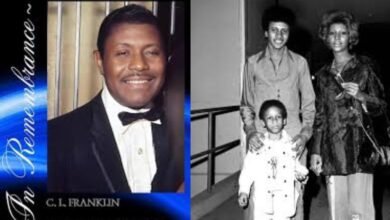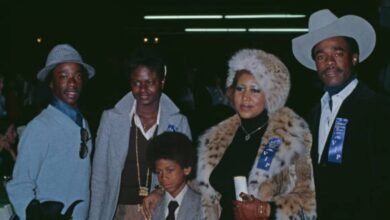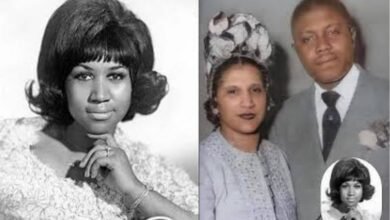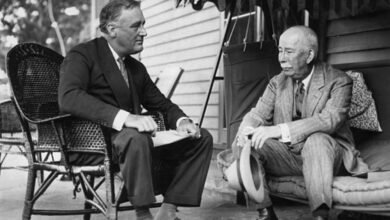C. L. Franklin: Life, Legacy, Family, and Tragic Death
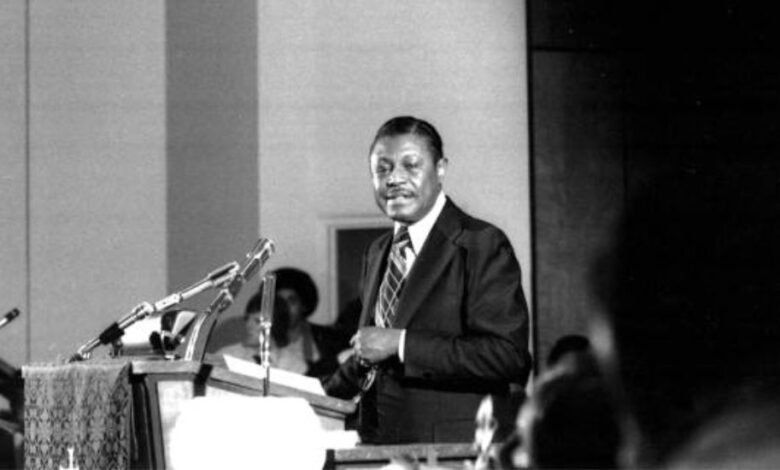
Few figures in American history embody the intersection of faith, music, and social activism as strongly as Reverend Clarence LaVaughn Franklin, better known as C. L. Franklin. Widely celebrated as one of the most dynamic Baptist preachers of the 20th century, he was also the father of legendary soul singer Aretha Franklin. Beyond his sermons and the pulpit, Franklin left an indelible mark on gospel music and civil rights, shaping both the spiritual and cultural landscape of America.
This article dives deep into the life of C. L. Franklin, his family, his spouses, his children, and ultimately the tragic circumstances surrounding C. L. Franklin’s cause of death.
Early Life and Calling to Ministry
C. L. Franklin was born on January 22, 1915, in Sunflower County, Mississippi. Raised in the deeply segregated South, his upbringing was rooted in the traditions of the African American church. At a young age, Franklin felt drawn to ministry, inspired by the sermons and music he heard in his local church.
By the time he reached his early twenties, Franklin had developed a preaching style that blended biblical wisdom, gospel rhythms, and an unmatched emotional depth. His sermons were not just spoken but delivered with a melodic cadence, earning him the title “The Man with the Million-Dollar Voice.”
Rise as a Preacher and Gospel Influence
Franklin’s ministry journey began in the South, but he soon moved northward, where his sermons found larger audiences. Eventually, he became the pastor of New Bethel Baptist Church in Detroit, Michigan, in 1946. Under his leadership, the church grew into one of the most influential congregations in the country.
Franklin’s recorded sermons became bestsellers, and his ability to merge spoken word with music set him apart. He also supported gospel singers and musicians, giving young talents platforms to grow. His home became a meeting place for musicians, activists, and preachers, exposing his children—especially Aretha Franklin—to a vibrant cultural and spiritual atmosphere.
Spouses of C. L. Franklin
Franklin’s personal life was both complex and deeply human. He was married twice, and his relationships had a profound influence on his family life.
- Barbara Siggers Franklin (m. 1936–1952): Barbara was Franklin’s first wife, and together they had several children, including Aretha Franklin. However, their marriage faced difficulties, and Barbara eventually separated from C. L., moving to Buffalo, New York, while their children remained with him in Detroit. She passed away in 1952, which left a lasting impact on the Franklin children.
- Alene Gaines Cecil Franklin: Later, Franklin married Alene Gaines Cecil Franklin. Though less is publicly known about their relationship compared to his first marriage, this union was also an important chapter in his personal life.
Children of C. L. Franklin
C. L. Franklin was not only a prominent preacher but also the father of several children who carried his legacy forward in different ways.
- Aretha Franklin: The “Queen of Soul,” Aretha Franklin became one of the greatest singers in history. Her musical genius and emotive voice were nurtured in her father’s home and church.
- Carl Ellan Kelley: Another child of Franklin, Carl’s life reflects the broader story of the Franklin family, though she remained largely away from the spotlight.
- Erma Franklin: A talented singer in her own right, Erma found success with songs such as “Piece of My Heart.”
- Carolyn Franklin: Carolyn was also a gifted singer, songwriter, and collaborator with her famous sister Aretha.
- Vaughn Franklin: Vaughn lived more privately than his siblings but was still deeply connected to the Franklin family legacy.
- Rev. Cecil Franklin: Cecil followed in his father’s footsteps in ministry and was a respected figure in the church.
The C. L. Franklin children together reflect both the blessings and challenges of growing up under the roof of such a public and influential father.
C. L. Franklin and the Civil Rights Movement
Franklin was more than a preacher; he was also an activist. During the 1950s and 1960s, he became involved in the Civil Rights Movement. He worked alongside figures like Dr. Martin Luther King Jr., organizing rallies and using his pulpit to call for justice and equality.
His ability to combine scripture with social commentary allowed him to connect with both spiritual seekers and political activists. He made New Bethel Baptist Church not just a house of worship but also a headquarters for community action.
The Tragic Cause of Death of C. L. Franklin
The legacy of C. L. Franklin is powerful, but his life ended in tragedy. On June 10, 1979, he was shot during a robbery attempt at his home in Detroit. The attack left him in a coma from which he never recovered. For nearly five years, Franklin remained in this state, cared for by his family and loved ones.
On July 27, 1984, C. L. Franklin passed away at the age of 69. The cause of death was directly linked to the injuries sustained in the shooting years earlier. His death marked the end of a remarkable life but also highlighted the violence and challenges of the time in Detroit.
Legacy of C. L. Franklin
C. L. Franklin’s influence lives on through multiple channels:
- Spiritual Legacy: His sermons remain some of the most powerful examples of African American preaching.
- Musical Influence: He shaped gospel music and indirectly influenced soul and R&B through his children.
- Family Legacy: His children, particularly Aretha Franklin, brought the Franklin name into international recognition.
- Civil Rights Contributions: He played a vital role in merging faith and social justice, inspiring future generations of activists and leaders.
His voice, often described as both commanding and comforting, still echoes through recordings that continue to inspire listeners worldwide.
Conclusion
C. L. Franklin was far more than a preacher; he was a father, activist, mentor, and cultural icon. His life story is one of triumph and tragedy, faith and family, influence and loss. From his powerful sermons to his leadership in the civil rights movement, his voice carried hope, justice, and spiritual power. Though his life ended tragically due to violence, his legacy continues to thrive through his children and the countless lives he touched.
For more historical and inspirational stories like this, visit my blog Sinuly Celebrities.
